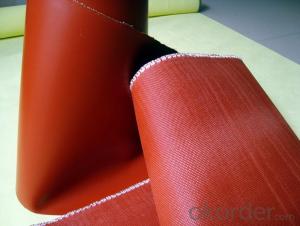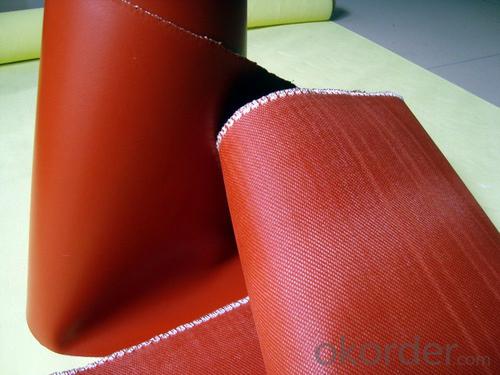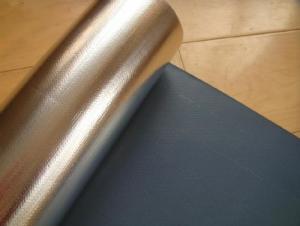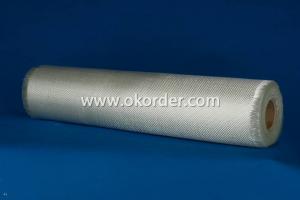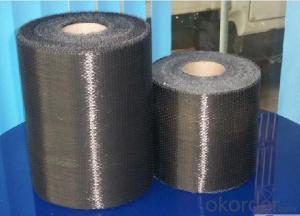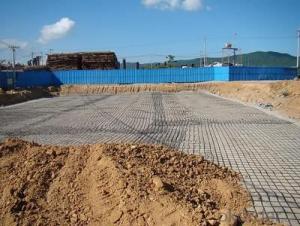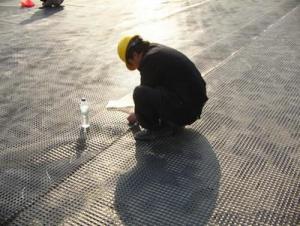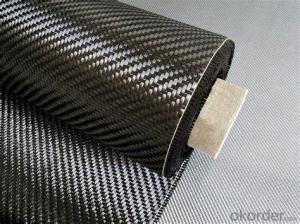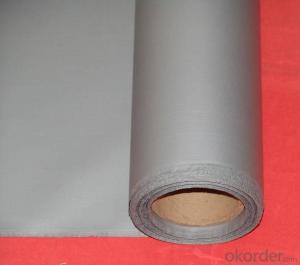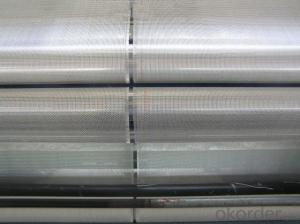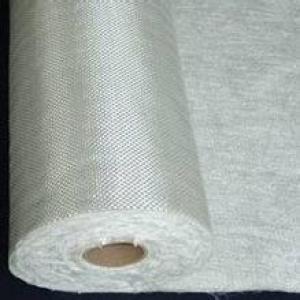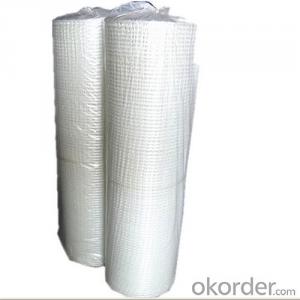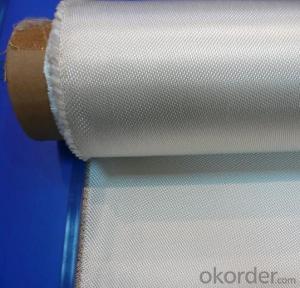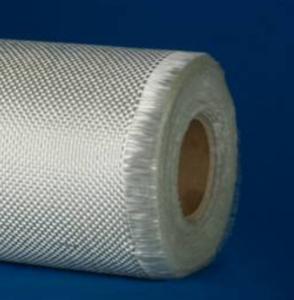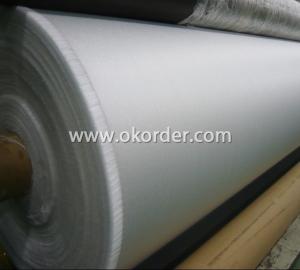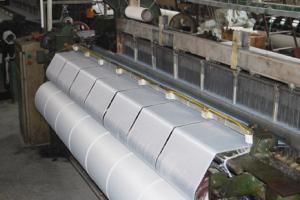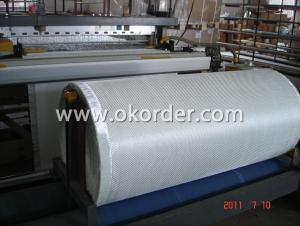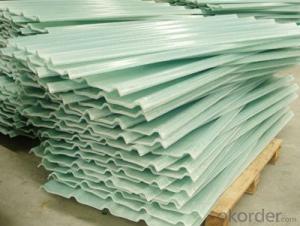Rubber Coated Fiberglass Fabric for Machinery Use
- Loading Port:
- Shanghai
- Payment Terms:
- TT OR LC
- Min Order Qty:
- 500 m²
- Supply Capability:
- 50000 m²/month
OKorder Service Pledge
OKorder Financial Service
You Might Also Like
Coated Fiberglass Fabric for Machinery Use
Fiberglass Fabric Description
Silicone coated fiberglass fabric is a fiberglass cloth, which possesses the properties of temperature resistance, anti-corrosion, high strength and is coated with organic silicone rubber.
Fiberglass Fabric Specification
Thickness:0.2mm-5mm
Width:100cm-150cm
Color;grey/red/silver/black
Weight(coating):130gsm-2800gsm
Model No | FSD2030 | FSD2030 | FSD2050 | FSD2100 | |
High temperature resistant(°C) | ≤280 | ≤280 | ≤280 | ≤280 | |
Low temperature resistant(°C) | ≥-40 | ≥-40 | ≥-40 | ≥-40 | |
Tensile intensity (N/50mm) | Warp | ≥1750 | ≥1750 | ≥2500 | ≥3500 |
Weft | ≥1280 | ≥1280 | ≥2100 | ≥3000 | |
Inflating burst intensity(Mpa) | ≥2.0 | ≥2.0 | ≥2.2 | ≥2.6 | |
Peeling intensity(N/m) | ≥450 | ≥450 | ≥520 | ≥600 | |
Insulation (kv/mm) | 16 | 16 | 18 | 18 | |
Weight (g/m*m) | 550-650 | 550-650 | 750-800 | 1500-1800 | |
Width(mm) | 1000±20 | 1000±20 | 1000±20 | 1000±20 | |
Thickness(mm) | 0.3-0.4 | 0.3-0.4 | 0.05-0.55 | 1.0-1.1 | |
color | Silver-gray, gray, red | lucency | Silver-gray, gray, red | Black, gray, red | |
Fiberglass Fabric Features:
1, Good performance on resisting high temperature and low temperature, -40°C-280°C;
2, High strength;
3, Ozone, oxide, light and weather aging resistance;
4, High insulation: dielectric constant:3-3.2, breakdown voltage: 20-50KV/MM;
5, Chemical corrosion resistant, oil-proofing, waterproofing (washable)
Fiberglass Fabric Application:
It has been widely used in construction, electric insulation,
chemical industry, pipeline ductile conjunction, large generating
Corrosion proofing field, machinery, metallurgy, sealing and so on.
Product Show
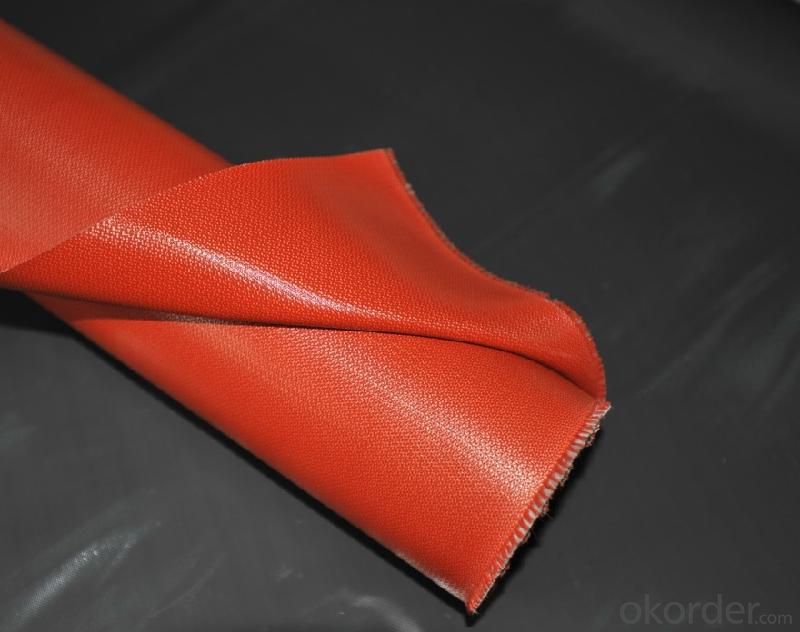
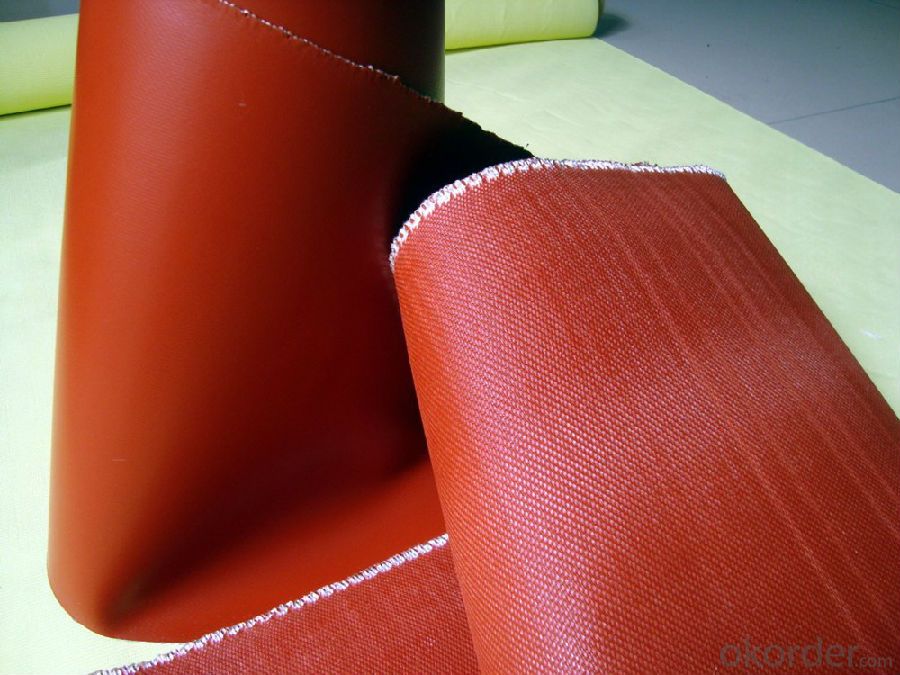
FAQ
1.What are the characteristics of fiberglass fabric?
a)Outstanding temperature resistance(from -70°C to +260°C)
b)Excellent chemical resistance
c)Superior non-stick surface, easy to clean
d)High dielectric strength
e)Dimensional stability
f)Resistance to UV, IR and HF
g)Non-toxic
2.How many methods to weave the fabric?
Four methods to weave the fabric:
a).Plain weave: it can be used in electricity insulation materials and reinforced materials in industry, because of inseparable structure, plain and clear lines.
b).Twill weave: compared with plain weave, it is of high density, high intensity, with a soft and loose structural weave. It can be used in ordinary reinforced materials, filter materials, and painting cloth.
c) Satin weave: compared with plain weave and twill weave, it is of high density,high intensity, with a soft and loose structural weave with a good texture. It is applicable for use as a higher reinforced material in machinery.
d).Gauze weave: said lattice twist weave. It can be used in spread model curtain,resin reinforced emery wheel gray cloth and lattice embed belt.
3.Can you offer us some samples?
We are willing to offer our customers best product&service,if it's necessary we can send
you sample for test;also we welcome all you customer have a trial order.
- Q: How does fiberglass fabric perform in electromagnetic fields?
- Fiberglass fabric is known for its good performance in electromagnetic fields. This is due to its non-conductive nature, which allows it to act as an effective barrier against electromagnetic interference (EMI). When exposed to electromagnetic fields, fiberglass fabric does not absorb or conduct the electromagnetic waves. Instead, it reflects and disperses them, preventing them from penetrating through the material. This property makes fiberglass fabric an excellent choice for applications where protection against EMI is required, such as in electronic devices, communication equipment, and aerospace applications. Furthermore, fiberglass fabric also has a high dielectric strength, meaning it can withstand high voltage without breaking down or becoming conductive. This makes it suitable for applications that involve high electrical potential, such as insulation in electrical cables or transformers. In summary, fiberglass fabric performs exceptionally well in electromagnetic fields by effectively blocking and dispersing electromagnetic waves, while also providing high dielectric strength. Its non-conductive nature and ability to withstand high voltage make it a preferred choice for EMI shielding and electrical insulation applications.
- Q: Can fiberglass fabric be used for making gloves?
- Gloves can indeed be made using fiberglass fabric. This material is known for its strength and durability, offering exceptional resistance against heat and fire. Its usage is prevalent in industries that demand protection against high temperatures or when working with hot objects. By weaving or knitting fiberglass fabric, gloves can be created to form a shield against heat, sparks, and flames, safeguarding the hands. Nevertheless, it is crucial to bear in mind that fiberglass may cause skin irritation and itchiness. Therefore, it is imperative to observe appropriate precautions and safety measures while utilizing gloves made from fiberglass fabric.
- Q: Can fiberglass fabric be used for making flags?
- Yes, fiberglass fabric can be used for making flags. Fiberglass fabric is a lightweight, durable, and weather-resistant material, making it suitable for outdoor applications such as flags. It is also known for its high strength-to-weight ratio, which ensures that the flag will withstand wind and other environmental conditions. Additionally, fiberglass fabric can be easily printed on, allowing for vibrant and long-lasting flag designs. Overall, fiberglass fabric offers an excellent choice for making flags that are both aesthetically pleasing and durable.
- Q: Is fiberglass fabric suitable for high-stress applications?
- Yes, fiberglass fabric is suitable for high-stress applications. It has excellent strength, durability, and resistance to heat, chemicals, and abrasion, making it a reliable choice for industries such as aerospace, automotive, and construction, where high-stress conditions are common. Its lightweight nature and flexibility further enhance its suitability for such applications.
- Q: Are fiberglass fabrics suitable for use in the marine industry?
- The marine industry finds fiberglass fabrics to be highly appropriate. Fiberglass, a sturdy and adaptable material, offers numerous advantages for marine applications. To begin with, fiberglass fabrics possess exceptional resistance to water, chemicals, and UV radiation. This makes them well-suited for enduring prolonged exposure to the harsh marine environment. The fabric remains intact and unaffected when subjected to saltwater, sunlight, or other corrosive elements commonly found in the marine industry. Additionally, fiberglass fabrics boast high tensile strength while being extremely lightweight. This makes them ideal for boat hulls, decks, and other structural components. The strength-to-weight ratio of fiberglass fabrics allows for the construction of sturdy yet lightweight marine vessels, resulting in improved fuel efficiency and performance. Moreover, fiberglass fabrics are known for their excellent thermal insulation properties. This is particularly important in the marine industry. The insulation provided by fiberglass fabrics helps regulate temperature, ensuring that the interior of boats or ships stays cool in hot weather and warm in cold weather. This is beneficial for maintaining comfort and reducing energy consumption onboard. Furthermore, fiberglass fabrics are easily manipulated and can be molded into various shapes and sizes. This allows for the creation of customized marine components. They can be used to reinforce or repair existing structures, as well as for the construction of new boats or ships. In conclusion, fiberglass fabrics are highly suitable for use in the marine industry due to their durability, resistance to harsh elements, high strength-to-weight ratio, thermal insulation properties, and versatility. Their wide range of applications and excellent performance make them a preferred choice for boat builders, shipyards, and other marine industry professionals.
- Q: Can fiberglass fabric be used for making insulation tapes?
- Yes, fiberglass fabric can be used for making insulation tapes. It is a commonly used material for insulation due to its high thermal resistance and ability to withstand high temperatures. Its durability and flexibility make it suitable for creating tapes used in various insulation applications.
- Q: Can fiberglass fabric be used for insulation in HVAC ducts?
- Fiberglass fabric is indeed suitable for insulating HVAC ducts. Its exceptional thermal insulation properties make it a popular choice for this purpose. By creating a barrier between the ducts and their surroundings, fiberglass fabric prevents heat loss or gain. Moreover, its lightweight nature, flexibility, and simple installation process make it an ideal option for insulating ductwork. Consequently, it effectively reduces energy consumption and enhances the overall efficiency of HVAC systems. Furthermore, fiberglass fabric exhibits resistance to high temperatures, moisture, and chemicals, ensuring its long-term durability and performance in HVAC applications.
- Q: How does fiberglass fabric perform in tensile strength?
- Fiberglass fabric is known for its excellent tensile strength performance. Tensile strength refers to the ability of a material to resist breaking or deforming under tension. In this regard, fiberglass fabric performs exceptionally well. The strength of fiberglass fabric is attributed to its composition, which consists of fine glass fibers woven together to create a strong and durable material. These glass fibers are known for their high tensile strength, making fiberglass fabric ideal for applications that require resistance to pulling forces. Fiberglass fabric exhibits a high tensile strength-to-weight ratio, meaning it can withstand significant amounts of tension without adding excessive weight to the structure. This property is particularly advantageous in industries such as aerospace, automotive, construction, and marine, where lightweight yet strong materials are essential. Moreover, fiberglass fabric's tensile strength remains relatively consistent even when exposed to harsh environmental conditions, such as extreme temperatures, moisture, and chemicals. This makes it a reliable choice for applications that demand stability and longevity. It is worth noting that the tensile strength of fiberglass fabric can vary depending on the specific manufacturing process and the type of glass fibers used. However, in general, fiberglass fabric is renowned for its outstanding tensile strength performance, making it a preferred choice in numerous industries and applications.
- Q: Are fiberglass fabrics resistant to static electricity?
- Generally, fiberglass fabrics exhibit resistance to static electricity. This is due to the fact that fiberglass is a non-conductive substance, preventing the flow of electrical current. Static electricity occurs when two materials with differing electrical charges make contact and then separate, leading to an imbalance of electrons. As fiberglass is non-conductive, it does not easily accumulate or retain static charge. Consequently, fiberglass fabrics have a lower tendency to generate or retain static electricity compared to conductive materials or those with a higher level of electrical conductivity. However, it is important to acknowledge that the specific characteristics of the fiberglass fabric can vary based on its composition and any additional treatments or coatings it may possess.
- Q: What's the quality of waterproof made of fiberglass fabric and waterproof coating?
- Terrace with waterproof coating, flexible waterproof better, but the cost slightly higher, glass fiber cloth cheap, but the quality is worse
Send your message to us
Rubber Coated Fiberglass Fabric for Machinery Use
- Loading Port:
- Shanghai
- Payment Terms:
- TT OR LC
- Min Order Qty:
- 500 m²
- Supply Capability:
- 50000 m²/month
OKorder Service Pledge
OKorder Financial Service
Similar products
Hot products
Hot Searches
Related keywords
